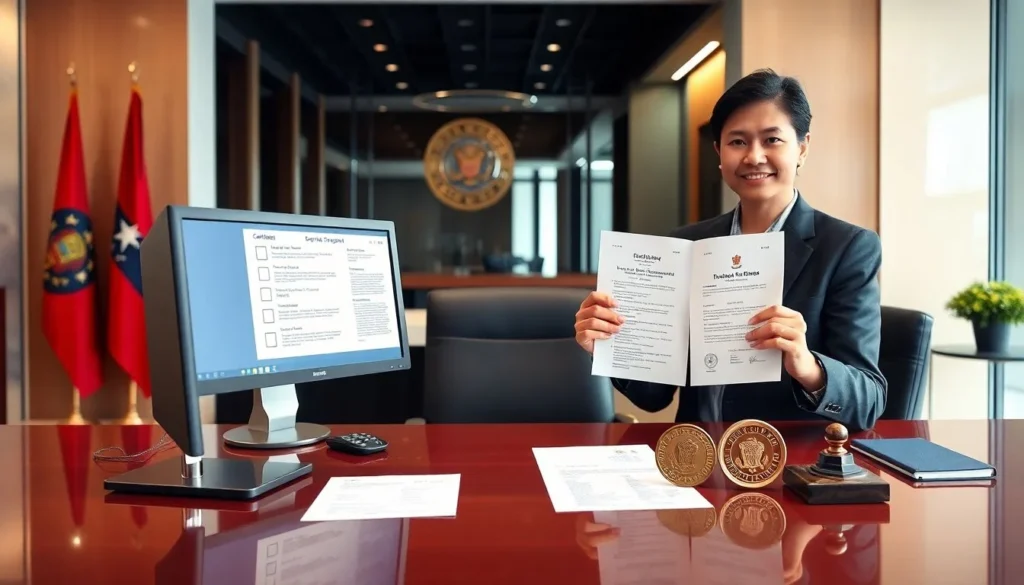 Embassy Attestation near me – Get Your Certificates Attested Before Taking Them for Further Attestation
Embassy Attestation near me – Get Your Certificates Attested Before Taking Them for Further Attestation
✍️ Introduction
Planning to work, study, or relocate abroad? One essential step in your journey is getting your certificates attested. Whether applying for a job, college admission, or immigration, proper document authentication ensures that foreign authorities recognize your paperwork. Embassy attestation, often the final step, confirms that your documents are genuine and valid across borders. Preparing your certificates with earlier attestations from local and national authorities makes the embassy process faster and more efficient.
🔍 Understanding Embassy Attestation: What It Is and Why It Matters
What is Embassy Attestation?
Embassy attestation refers to the official verification of documents by a foreign embassy. This final layer of authentication confirms that your papers are legitimate and acceptable overseas. Without this verification, foreign institutions may reject your documents, leading to delays or even legal complications. Essentially, it’s a stamp of approval showing your document’s authenticity.
Why Proper Certificate Attestation Is Crucial
Accurate and complete attestation ensures that your documents meet international standards. A university or employer abroad might not accept an unauthenticated degree certificate. Missing key steps can trigger delays or result in fines. In countries with strict documentation protocols, improper attestation could force you to repeat the entire process. So, doing it right the first time saves time, money, and frustration.
📄 Types of Certificates That Require Embassy Attestation
Commonly attested documents include:
- Educational certificates (degrees, diplomas)
- Birth and death certificates
- Marriage and divorce certificates
- Legal paperwork (power of attorney, affidavits)
- Commercial documents (invoices, licenses)
In India and many other countries, these attestations are often mandatory for international travel, employment, or setting up businesses abroad.
🧭 The Step-by-Step Certificate Attestation Process
1. Preparing Your Certificates
Start by reviewing your documents for accuracy and completeness. Ensure names, dates, and seals match official records. Depending on requirements, some documents may need notarization first.
2. Local or State-Level Attestation
Begin with state authorities—Notary Offices, Home Departments, or Education Boards—who authenticate the base validity of your certificates. Commercial papers go through trade bodies like the Chamber of Commerce.
3. National Attestation (Ministry of External Affairs)
Once your documents receive state approval, the Ministry of External Affairs (MEA) validates them for international recognition. This step confirms the origin and integrity of each certificate.
4. Embassy Attestation
Take your authenticated papers to the relevant foreign embassy. Requirements vary by country, but you’ll generally need:
- Original and notarized copies
- Identification documents (e.g., passport)
- Visa-related paperwork
Follow embassy instructions closely and pay applicable fees. Processing times range from a few days to several weeks.
5. Final Legalizations (if required)
Sometimes, destination countries demand additional certifications. You might need HRD attestations or legalizations from their local authorities. Track your progress using embassy portals or agency updates.
🛡️ Tips to Ensure Successful Embassy Attestation
Keep Documents Up-to-Date
Verify that your papers are valid, signed, and free from errors. Incomplete information often leads to rejection.
Choose Trusted Attestation Services
Professional agencies streamline the process and understand documentation nuances. Always check reviews before hiring a service provider.
Handle Challenges Proactively
Missing documents or mismatched records can cause delays. Request duplicates or supporting evidence early to avoid last-minute issues.
Stay Legally Compliant
Embassy requirements may evolve, especially due to international agreements. Always consult current guidelines from official websites.
📌 Real-Life Examples
An Indian student applying for a UK work visa submitted a degree certificate, first verified by Indian authorities and later attested by the UK embassy. The well-prepared application sped up the visa approval.
In another case, a business owner planning to expand in Singapore ensured commercial papers were properly attested—resulting in smooth registration and no legal hiccups.
🔄 Emerging Trends in Attestation Procedures
Many embassies now accept online applications, reducing manual paperwork and wait times. Digital signatures and verification portals offer transparency and ease. However, these procedures still vary by country and are subject to change based on diplomatic ties and regional laws.
Stay updated with embassy announcements and consult experts to keep your documentation compliant.
🏁 Conclusion
Proper certificate attestation is essential for overseas education, employment, or migration. Starting early, staying informed, and choosing trusted services helps you avoid complications. The embassy stamp may seem simple—but it’s what opens doors to global opportunities. Handle this step with care, and your international journey will begin on solid ground.
Angola Embassy Attestation, Bahrain Embassy Attestation, Certificate Apostille, Certificate Attestation, China Embassy Attestation, Egypt Embassy Attestation, Italy Embassy Attestation, Kuwait attestation, Kuwait Embassy attestation, Malaysia Embassy Attestation, MEA attestation, MOFA attestation, Oman Embassy Attestation, Qatar embassy attestation, Russian Embassy Attestation, Saudi Embassy Attestation, Taiwan Embassy Attestation, UAE Embassy Attestation, Vietnam Embassy Attestation, Visa Stamping
